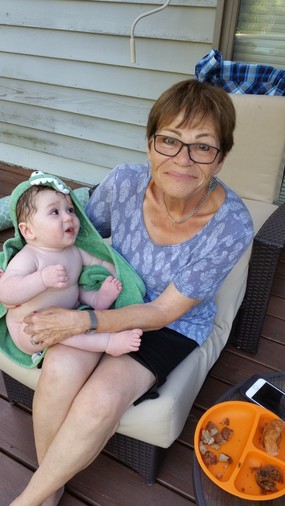Whistleblower remembered as devoted caregiver
Many may remember Bracha Graber as the city social worker-turned-whistleblower who exposed citywide foster care fraud in the early 1990s. But to countless children looking for homes, the former Riverdale resident was the first person social services called, even in the middle of the night.
Graber beat breast cancer once, but lost her battle with lung cancer, dying July 5. She was 68.
When Graber first realized the city was collecting millions of dollars for foster care services it never provided, she tried to solve it through “less aggressive” means, said her son, Daniel Graber. She sent anonymous letters reporting the situation to city officials, but nothing changed.
“She was a very, very private person,” husband Bernie Graber said. And because of that, it took her nearly a year to step forward as a whistleblower.
“I remember being very proud of her,” said another son, Michael Graber. “We were all proud of her for doing the right thing.”
Bracha’s identity as a whistleblower remained secret until the case was made public. When her identity was revealed in a New York Times story, Bracha didn’t let it faze her — she still went to work that day.
“I remember her saying, ‘If I don’t go into work today, I’ll never be able to go into work again,’” Daniel said. “I think it was pretty courageous of her to go in, and of course, her (supervisors) were the ones perpetrating the whole scam.”
Laurence Hasson, a childhood friend in Riverdale of Bracha’s son Michael, remembered her as someone who “always had a smile on her face” with “a great sense of humor and a positive outlook on things.” Hasson knew about Bracha’s role with the federal government’s case growing up.
Today, Hasson is an attorney who represents whistleblowers.
“I don’t think I had a real appreciation and understanding of what it means to be a whistleblower and what Bracha did until I came into this practice,” he said. “They’re putting themselves at risk in a lot of ways because they often get retaliated against. They could potentially lose their jobs. They run the risk of getting blacklisted from competing companies that might find out about the whistleblower case.
“So, they have a lot to lose here, and they’re still stepping forward to do the right thing.”
Bracha actually kept her job, but soon realized there was little room for career advancement, her husband said. She would beta test the state’s new foster care computer system, requiring her to travel to Albany up to four days each week.
When the case settled for $49 million, Bracha collected 10 percent of the payout. She used part of the money to fund the college education of her two sons, and the rest went to a foundation she created to provide art and music education for foster children.
The two moved to Los Angeles in 1999 after Bernie was offered a job as a management consultant in the retail industry there. Bracha continued her foster care work out there until the early 2000s.
“When she used to turn out that big smile, you just warmed up,” Bernie said. “I was madly in love with her. Knowing her made me a better person.”
The two met after Bernie was discharged from the U.S. Marines, and they married two years later in 1972. The newlyweds lived in Jamaica before moving to Riverdale in 1974, where they raised their sons.
Her daughter-in-law Caren Graber remembered how Bracha flew across the country to babysit their children when they took a vacation.
“She didn’t think she was doing us a favor,” Caren said. “She really just wanted to spend time with the kids. She was happy to take them anywhere. She would take them to Broadway shows, museums, the park. Even as my girls got older, she loved to shop, and she would take them shopping.”
“She’s not really like a mother-in-law,” Lani Perlman, her other daughter-in-law — and a former reporter for The Riverdale Press — about the negative stereotypes sometimes associated with in-laws. “Caren and I actually each, when she passed, separately had friends tell us how lucky we really and truly were, and that nobody else had a relationship with their parent in-law like we did.”
What made Bracha such a memorable person, Perlman added, was “how lovely and non-judgmental” she was of people. People could share anything with her, and she would offer a helping hand.
Bracha was born in Israel in December 1948, but moved to New York when she was 11, speaking no English at the time. She received her bachelor’s degree in psychology from Stern, Yeshiva University’s college for women, and later earned her master’s degree in social work from Fordham University.
Bracha’s first job was at the Catholic Guardian Society, becoming the organization’s first Jewish social worker. She eventually went on to work for the city.
Besides her husband and two sons, Bracha is survived by her grandchildren Arielle, Benjamin, Noah and Max. She also is survived by her brother Avi Friedman and sister Tova Friedman.
“She just loved exploring the world, meeting new people,” Lani said. “She was incredibly warm and accepting. No one was a stranger to Bracha.”







